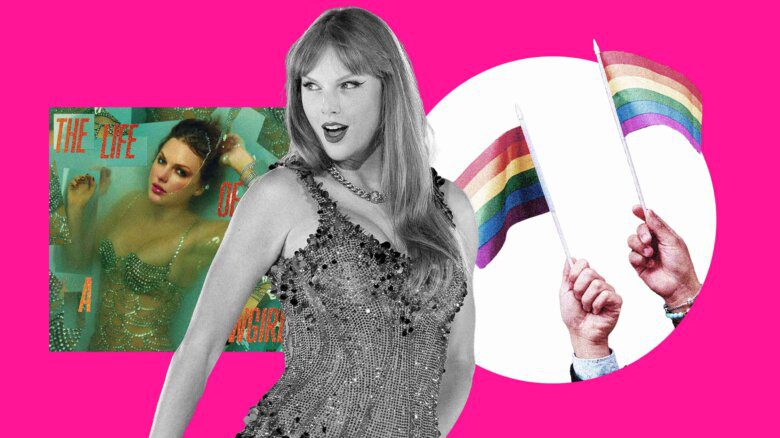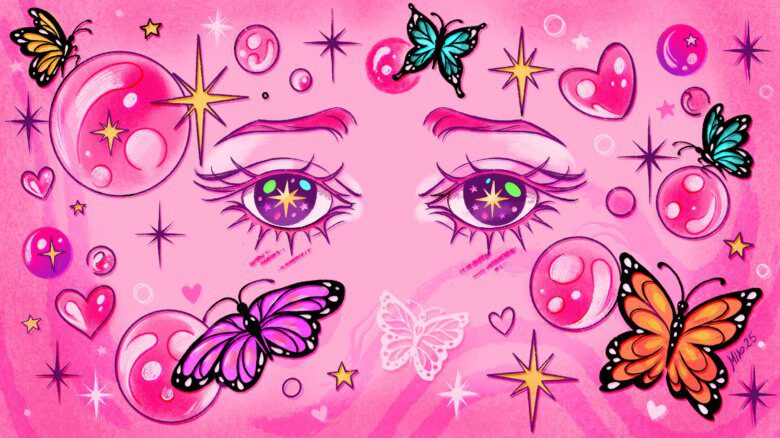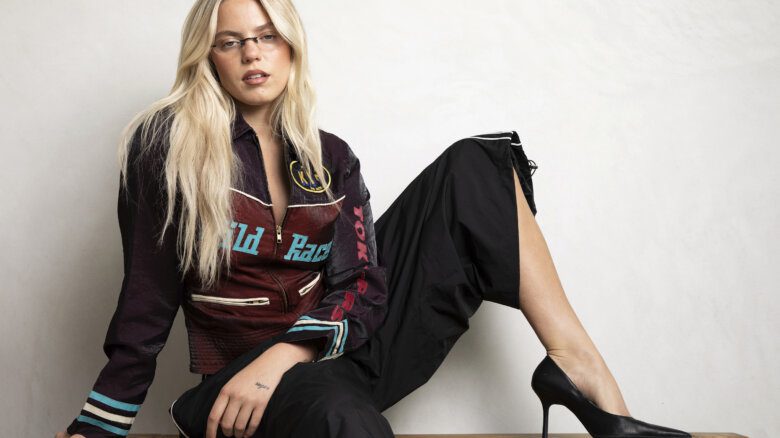David Morales has learned a thing or two about vigilance and conviction from DJing on queer dancefloors for more than 45 years. As he navigated the ever-changing world of dance music, the American music producer of Puerto Rican descent has championed underground house music and its intrinsic connections to LGBTQ2S+ liberation and diva appreciation. His 500-plus (!) remix track record—which includes compositions that turned pop songs into queer anthems for the likes of Frankie Knuckles, Whitney Houston, Mariah Carey, Annie Lennox, Aretha Franklin, Janet Jackson, Mary J. Blige—has gone on to top the Billboard dance charts for decades. Days before headlining Pride parties in Montreal, Toronto and San Francisco, Xtra spoke to the mixmaster about his early days being nurtured by the kings and queens of the LGBTQ2S+ community, the music industry’s anti-queer stance on house music and remaining resilient off and on the dancefloor.
The first time I experienced your music was at a ballroom event where dancers were competing to the red zone remixes of Jody Watley’s “I’m the One You Need” and trying to live the song. Have you ever experienced that level of connection to your music?
I have. It’s powerful. I’m very emotional about those early days and early remixes because those songs inspired people from the community to come up to my booth and say things like “you saved my life” or “you brought me out of dark place” or “you helped me forget the hate for us that’s outside of this club.” What you’re talking about—remixes like these—are the soundtrack to my story as a DJ, which is why I named my new album Life Is a Song. It took me years to figure out what my music meant to LGBTQ+ people and I’m careful about what that is. I got told my music helped them fight against haters. It doesn’t get better than that.
In Sean Bidder’s book House: The Rough Guide, your Brooklyn childhood is depicted as extremely challenging. How did finding the club scene and LGBTQ2S+ community change things for you?
Speaking of getting your life saved … mine was saved when I found them and I found house music. Listen, when you grow up in a roach-infested home with so much violence around you like I have, you just want out of that mess. I think about the life expectancy in my neighbourhood back then, and I feel privileged to have found [DJ] David Mancuso and to get invited to The Loft and become his “Loft Baby.” I come from the same product of drug addicts, blocks filled with gangs, gun violence … low income doesn’t even begin to describe it! That rough upbringing reminds me of the LGBTQ+ community who were struggling with HIV/AIDS and getting thrown out of their family homes, and a lot of them were poor. The funny thing is that my neck of the woods—which was the ghetto—seemed to be the only place where people left their doors open at night with no locks. There was community in both places even when things were the worst they could be.
What other parallels did you see with your biological family and your clubland family?
I had friends who were seen by others as no good—people who didn’t get a chance and ended up in prison or dead. I went to more funerals when I was a teenager than I ever did when I was an adult. Making music with Frankie [Knuckles] and for so much of the community, I learned that you had to carry on and just work when a hundred or a million odds are against you. I remind myself of that time with Frankie a lot because I’m going to be 60 years old in August, and I’m still having the fucking time of my life. This happened because of who took me under their wing—people like Frankie and David.
“There’s always a new way of saying love.”
Do you think you are still making music for underdogs?
Yes. That’s what separates the legends from the people who are just going through the motions.
Tell me about what drew you to The Loft and your first reactions to David Mancuso and this all-queer party?
Someone took me to David’s house, which was The Loft. You needed to be known or know a member to get in, or you had to be sponsored. It was like a movie when I saw David. The music made my jaw drop. Never heard that kind of set list that was so soulful and really diverse before. There was no alcohol, but free water, coat check and food. After the party, David was more than open and willing to teach me. He would speak to me for hours about his sound. He invited me over to The Loft during the week, showed me his amplifiers and equipment and I was just like, “Oh my God.” His sound systems were really no fucking joke—they should be in the history books. After I met him, I became the ultimate Loft-head. I was there from beginning to the end, every single Saturday. We would take LSD and get to The Loft at 6 p.m. in the evening and stay until we had to go to work the next day at 7 or 8 a.m. I was so obsessed with his set list that at work, all I could say was, “Oh my God, David played this and he played that.”
What motivated you to move into making your own spaces and sounds?
Well, the records were expensive, like $50 or $75. I had a restaurant job making only $175 a week. After a taste of The Loft, I knew I had to start my own night in Brooklyn that was based around the Dave Mancuso philosophy. That was my party, Ozone. I would put up balloons, make my flyers on my coffee break and put them up. Once, during a blizzard, I had to take crates of records in the snow on the street, in a shopping cart, to get to the club, because the sidewalk was blocked waist-high with snow. That’s how bad I wanted to play—even if it was only 50 friends showing up. People ask me, “What would you rather play for: a festival or a club?” and I always tell them: “Give me a club, dark, sweaty, low ceiling, 200 people and I’m good to go.” It brings me back to my love of The Loft.
Frankie Knuckles once told me the only partnership he ever felt that was completely equal was yours. Can you explain what he meant by this?
That’s how we complemented each other. He’d say he took the top part of a song and made it pretty, and I’d take the bottom part and make it gritty. Think of it this way: I was the young ghetto boy and Frankie was Liberace. We both had our own personalities in the music, and you can hear the dirty beats from me and the sophisticated composition from him. When I play some of his records today, I fucking bawl because some of these records are just so iconic. You don’t hear nobody going through those extremes in dance music.
Which one of Frankie’s tracks moves you the most?
The remix of “Where Love Lives” with Alison Limerick. We took that track to the limit! After that it was like he was my big sister.
Frankie used to say that the Paradise Garage was church for queer people who have fallen from grace. Did you feel that spiritual experience from the community?
I was too young to appreciate the power of our music yet. When I first listened to Larry Levan at the Garage, I was really disappointed in his mixing. I didn’t understand that other level of the journey of his messages until I grew older and saw it for myself. I remember how Larry would speak to people when he played every record and how he could relate to their problems, their heartbreaks and the judgments they felt. Fast forward to now, and I understand Larry and how important his place was in the LGBTQ+ community. Sure, he was moody and he was a bitch and he was a drama queen, but what made him so special was that he was also a fucking artist. He knew how to turn your ass and your mind out.
“I was the young ghetto boy and Frankie Knuckles was Liberace.”
Was your connection Keith Haring also a game-changer for you?
He was painting the beats! He was painting DJs! Sometimes he would sketch when we played. I played for one of his parties at a place called the Columns. Keith invited me to his studio and I could see how he was doing the same thing I was doing, but in a different way: he was making music with paint and visual art. He drew on a piece of vinyl for me—I was playing at the Red Zone at that time and somebody stole it. Do you know how much money I could have got for that thing today? I just painted my studio and used one of his dance figures as an inspiration, so he’s been on my mind. He wasn’t even at his peak yet and he was already prolific. To know that you were included in a moment in time of a movement with somebody who appealed to the world and left his mark is strange to think about because we were just kids hanging out and making stuff. He looked like the nerdiest motherfucker you ever saw. I am more of a flamer than he ever was. People at The Loft and Paradise Garage would call me a straight queen, but Keith wasn’t flamboyant. It is still the same today. All the DJs are gay or from the LGBTQ+ community, but I play gayer than all of them!
Tell me about the buildup to the most famous moments of your remixing. When was that and what was that period like?
I was mixing an average of two to three records per week, spending 100 hours a week in the studio, remixing Annie Lennox, Seal, Aretha Franklin, Mariah Carey, Donna Summer and Whitney Houston. I got somebody to give me a chance to go to the studio and mix Whitney Houston’s “Love Will Save the Day” … in 1987. [But] the world didn’t get to hear it at first … and my heart was broken.” [A version was included on Whitney’s greatest hits disc of 2000.]
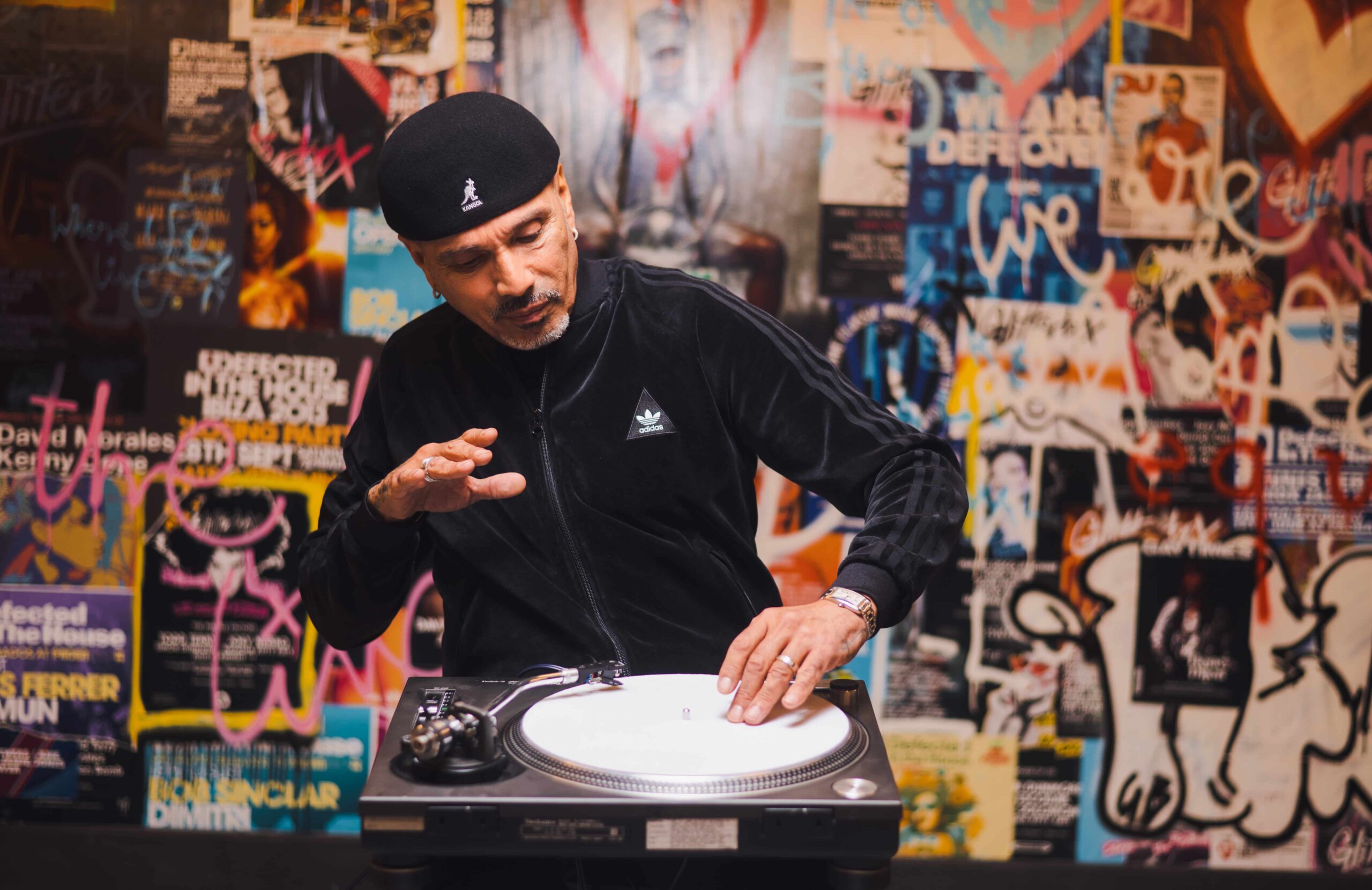
Credit: Omniverse
Through the years, house musicians and DJs have told me record companies refused to release their music because they were deemed “too Black” and “too gay.” Was that the case with your Whitney mix?
Well, they never released it commercially! I was gutted, devastated, but that’s when I understood how the music industry could be racist and homophobic. I was representing house music at that time, you understand, music that from Black, Latin, gay communities. The A&R guys and the promotion guys and major labels were so fucking straight and white and afraid of anything that they didn’t understand. They didn’t even know what house music was because house was only played in the underground, Black, gay, Puerto Rican clubs at the time. It wasn’t being played in white, straight clubs at all! We’re talking about ’87 and house music was really just conceived in ’84 and brought to the masses from the underground in ’85, ’86, ’87. Anyway, they only pressed out 250 copies of my Whitney remix and I was gutted because she was at the top of the food chain.
Then your collaboration with Mariah Carey with “Dreamlover” started to change things. You asked for her to re-record the song for your remix and she did. Why do think she was so open to remixing her work for primarily queer clubs?
I think because she was a baby; she was 21 and loved to experiment and dance and had the insight to get into house quickly. We worked hard on that track. But again, you were only able to find it in the record stores in London—they didn’t release it commercially in America because they did not want her to be known as a dance artist. I always wondered why did they have me mix all her fucking records then? I did about 11 of them! It’s because of her; it mattered to her. Once she got a taste of what “Dreamlover” gave to the LGBTQ+ community for her, she ate that shit all up. Then Aretha, Donna Summer, Seal, Toni Braxton and everyone else followed … we were breaking the mould.
“Middle America is one thing and the dancefloor is another.”
What do you think DJs and house music did for artists who were usually—and carefully—marketed to straight, pop, white audiences?
It brought them relevance. To the dancefloor and the LGBTQ+ community … not the commercial world because middle America is one thing and the dancefloor is another. The dancefloor is, like Frankie said, a church to a lot of people in the community. That loyalty is stronger than for the general public.
One of my favourite collaborations of yours is with Róisín Murphy on the track “Golden Era.” It really does look back at the history of clubland.
She’s a brilliant lyricist. She knows what she’s talking about when she writes about the end of an era in dance music; she’s lived through so many eras. She got how different people perceive their “Golden Era” with lines like: “To you it’s just the same old story/ Another fairy tale made of faded glory” and “Is this my world disappearing/ Is this the end we are nearing.” She’s like Neil Tennant from the Pet Shop Boys. They are both like Shakespeare for dance music.
What do you listen to off the decks?
Old music when I’m at the gym. The Stylistics and soul from the ’60s, the ’70s. Now that I’m a writer and producer, I have a respect for lyrics that goes beyond just the vocal track. I love intelligent lyrics. There’s a way of being able to tell a story in a way that’s not obvious. There’s always a new way of saying love. There’s a new way of expressing pain. Finding that way is the hard part, but classic lyricists do it well.
What do you think about dance clubs as safe spaces for LGBTQ2S+ people? Especially during this time of “Don’t Say Gay” laws in Florida and Republicans trying to overturn gay marriage?
Not sure that clubs are safe spaces for LGBTQ+ people. The Pulse nightclub shooting in Orlando, Florida, in 2016 that killed 49 people and wounded 53 was horrific. That said, the LGBTQ+ community and their advocates mobilized in the ’80s to force leaders to take action to fight AIDS. They mobilized again to get same-sex marriage laws passed in 2015. The only advice I can offer people right now is to remain vigilant, get involved and vote as if their lives depended on it.
Tell me about what you’re working on next.
Listen honey, let me tell you, I’m in the studio every fucking day, every day. My laptop goes on the road with me with a little keyboard every day. I’m always cooking a dish. I have ingredients stocked up and I watch how to measure and mix it for the final plate. You can have too much salt. You can have too much pepper. I just can’t wait for Pride Toronto, and then going on the road so I can share the recipes.
What would you say is the biggest LGBTQ2S+ anthem ever remixed and why?
“So Emotional” by Whitney Houston. No explanation needed.
David Morales spins in Montreal on June 23, San Francisco on June 25 and Toronto on June 26 before heading to Europe with summer dates in the U.K., Croatia, Italy and more.
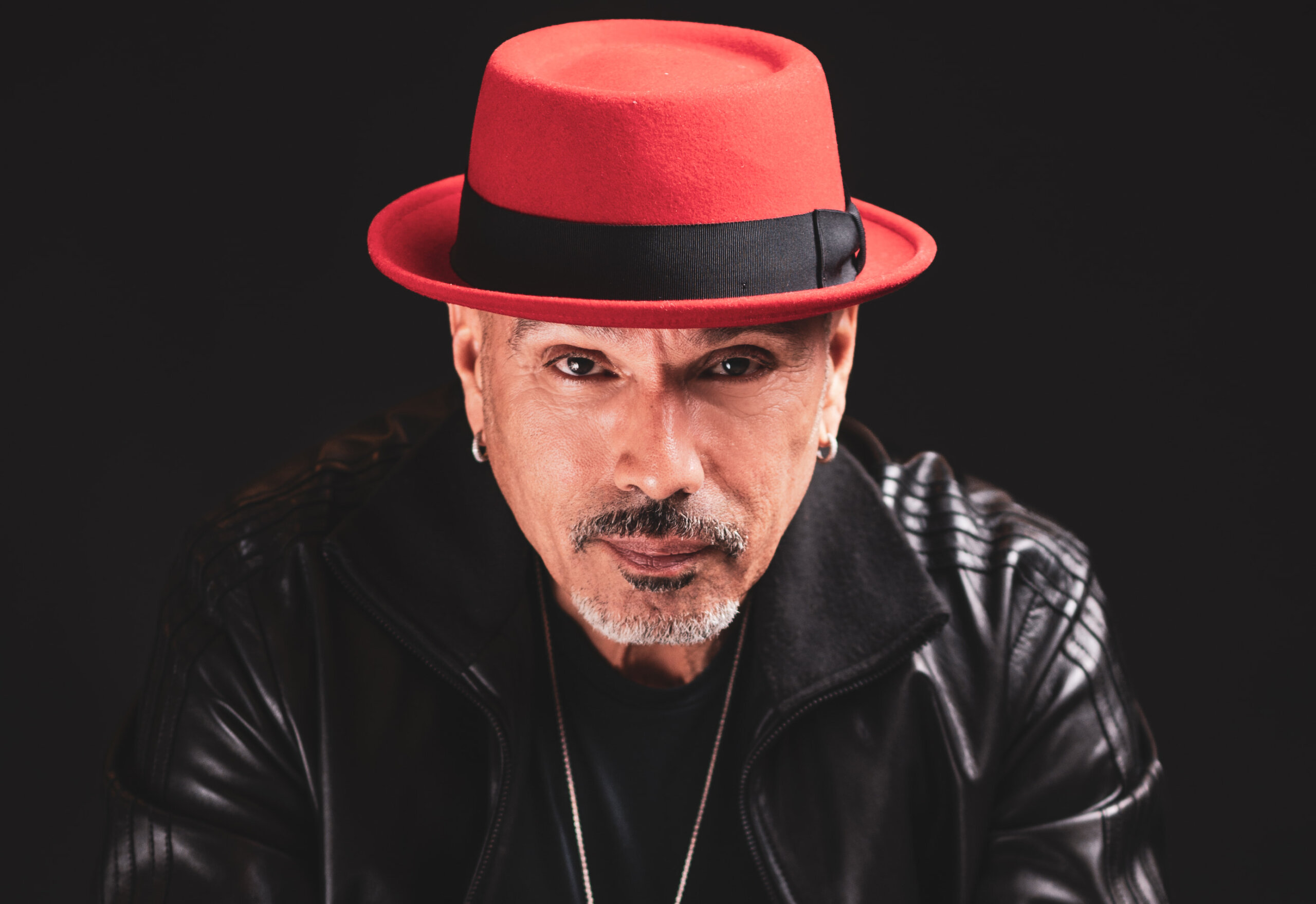
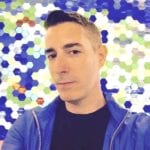
 Why you can trust Xtra
Why you can trust Xtra